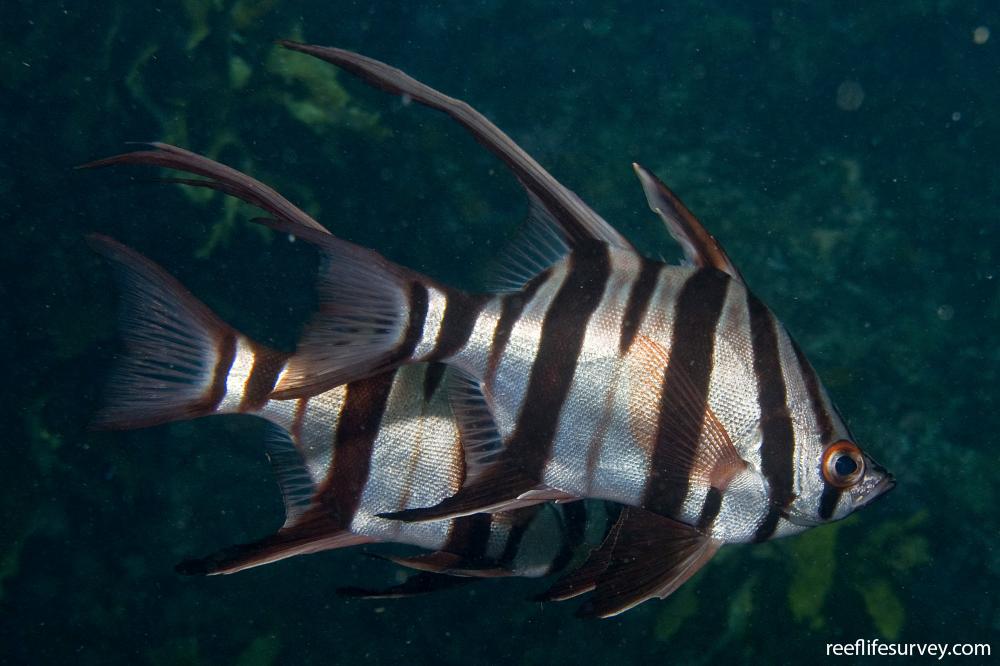Enoplosus armatus
Old wifeDistribution
Temperate Australasia
Description
Occurs in pairs or as large solitary individuals on coastal reefs, but more often is seen in large schools in sheltered habitats such as over seagrass beds or beside jetty pylons. This species should be carefully handled when captured as the spines in the first dorsal fin are venomous. The name ‘old wife’ is derived from the grating sound that the fish makes when stressed.
Information
Max Size: 50 cm
Sea Temperature Range: 12-24.6°C
Depth: 0-100 m
Habitat Generalization Index: 28.36
Also referred to as the SGI (Species Generalisation Index), this describes the habitat niche breadth of the species. Species with values less than 15 are found in a relatively narrow range of reef habitat types (specialists), while those over 25 may be found on most hard substrates within their range (generalists). Learn more here.
Conservation and Rarity
IUCN Status: Not Evaluated
Occurrence: Common (48.8% of sites)
Occurrence describes how often the species is found on surveys within its distribution. It is calculated as the % of reef sites surveyed by RLS divers across all the ecoregions in which the species has been observed
Abundance: Several (6 per transect)
Abundance is calculated as the average number of individuals recorded per RLS transect, where present.
Edit by: GJ Edgar. 2008. Australian Marine Life. New Holland, Sydney









